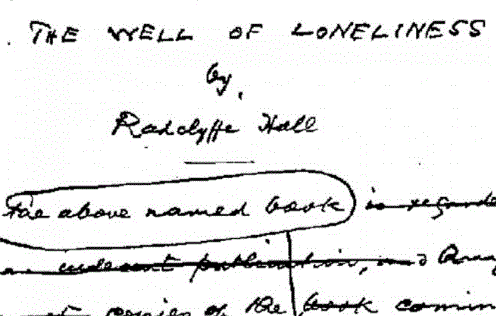How was the concept of obscenity governed in the absence of specific statutes that defined what was and was not obscene? To what extent was this governance an effect of the time and place in which it emerged? Drawing on early twentieth century case studies, all of which are compiled from files in the National Archives, Dr Louise Chambers investigates these questions in relation to the banning of novels whose narratives featured same sex relations between women.
